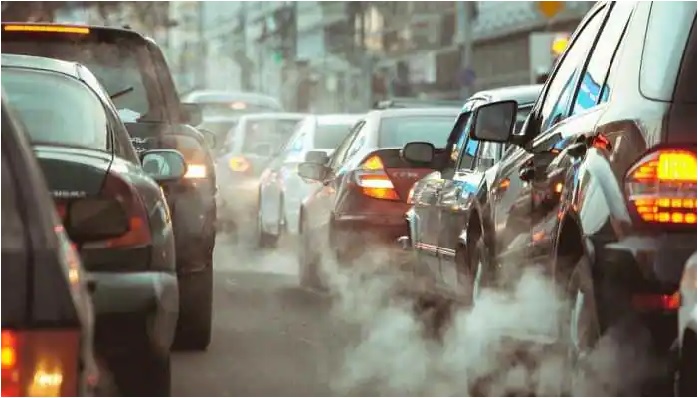Study Finds Vehicle Pollution Kills More Than Car Crashes in Australia
A study conducted by the University of Melbourne showed that over 19,000 heart and lung-related cases in hospitals in Australia could be linked to vehicle pollution. Every year, the expected increase in cases of asthma is around 66,000.
Research indicates that exposure to air pollution is dangerous and can kill thousands more than vehicular accidents. Every year, over 11,000 premature deaths in Australia are caused by vehicle emissions.
Industry insiders believe that the ideal solution is for the government to institute changes in current policies. It’s also important to urge carmakers, car owners, and the public to commit to the zero emissions goal.
What the researchers did
To achieve their research goal, the Melbourne Climate Futures group used a New Zealand-developed peer-reviewed formula (but adjusted to fit Australia). This helped them come up with how vehicle pollution impacts the environment and human health.
What the researchers found was that air pollution from vehicles has significantly higher health impacts compared to previous estimates. Findings indicate that around 11,105 early deaths per year may be due to vehicle emissions. This figure is higher than the total number of road accidents recorded for 2021, which was at 1,123.
Policymakers also had information on vehicle emissions, but theirs was multiple times lower than what the research uncovered. Information indicates that these estimates did not even reach the 2,000-per-year mark.
The emissions in focus in Australia do not focus on NO2 or nitrogen dioxide because figures in the past did not show serious health impacts.
Authorities and experts, including Melbourne Climate Futures’ Clare Walter, believe that solutions for reducing or eliminating vehicle pollution can be both long and short-term. Leaders should be wise in their decision-making. Additionally, clear, concrete, and immediate action is needed if the goal is to reduce tailpipe emissions.
Emissions impacts
Aside from the 66,000 active cases of asthma, the study also showed other impacts that exposure to vehicle emissions can cause. These include over 6,800 hospital admissions every year and an estimated 12,210 hospitalisations linked to cardiovascular disease.
The most common emission that comes from vehicles, particularly diesel-powered ones, is nitrogen oxide or NOx.
NOx is composed of toxic gases, including NO2 and nitric oxide or NO. It is highly reactive, especially when combined with other chemicals. It helps form acid rain and smog and is responsible for producing a pollutant known as ground-level ozone.
NOx emissions have devastating health impacts. It can affect a person’s mental health, making episodes of depression and anxiety more frequent even for those who haven’t had such experiences in the past.
A person’s cognitive health may also decline, and this can lead to dementia, specifically Alzheimer’s disease. This can be prevented by minimising exposure to air pollution.
The health impacts of NOx emissions vary from the simplest to the most serious and complicated.
Asthma and other respiratory illnesses, such as emphysema and bronchitis, are common impacts. However, this can later develop into COPD.
Other common health impacts include pulmonary oedema, vomiting and nausea, and corroded teeth. Serious health impacts that can develop after regular exposure to NOx emissions are:
- Laryngospasm
- Cancer
- Asphyxiation
- Cardiovascular disease
- Premature death
Vehicle emissions were also at the centre of the 2015 Dieselgate diesel emissions scam that involved the Volkswagen Group.
Dieselgate and vehicle emissions
The Volkswagen Group received a notice of violation from US authorities in September 2015 after authorities allegedly found out that the carmaker used illegal defeat devices in their VW and Audi diesel vehicles. Sold to car owners in America, these vehicles exhibited compliant emission levels when they were under testing conditions, with the help of the cheat devices. They did this so the vehicles could easily pass regulatory testing.
However, emissions were found to be extremely high when the vehicles were brought out of the lab and driven on real-world roads. This means that carmakers allegedly deceived their customers by selling high-polluting vehicles.
Authorities asked VW to recall all affected VWs and Audis. The German carmaker has also spent billions in payoffs, including fees, fines, and compensation.
Not long after, other carmakers were also implicated in the fiasco. The diesel emissions scandal soon became one of the biggest controversies that confused the global automobile industry.
One of the manufacturers that was recently implicated in the scandal is Japanese carmaker Nissan. In 2018, the carmaker admitted that they found falsified data collected through emissions testing in their factories in Japan.
Before this discovery, Nissan had already recalled over one million vehicles after authorities said that the safety checks failed to pass domestic standards. Currently, affected drivers have already started their Nissan emission claim with the help of emissions experts.
What’s my diesel claim?
A diesel claim is the kind of legal action expected from any driver or car owner affected by the Dieselgate scandal. It is a no-win-no-fee-guaranteed case that emissions experts can help you with. If your case is a success, Nissan (or whoever your manufacturer is) will compensate you, the amount of which will depend on the details of your diesel emissions case.
First off, though, you’ll have to verify if you are qualified to file a claim and receive compensation. You can do this with the help of ClaimExperts.co.uk. Do this before you start working on your claim.


Comments are closed.